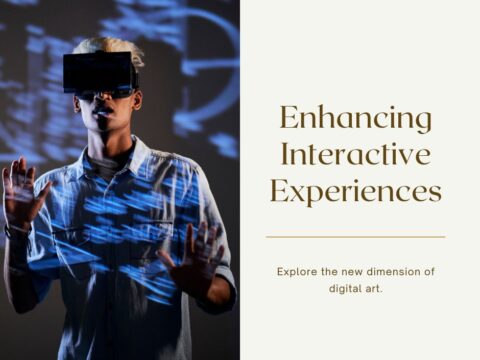The emergence of Non-Fungible Tokens (NFTs) has revolutionized the concept of ownership, extending its reach beyond physical assets to encompass virtual real estate. Let’s explore the role of NFTs in virtual real estate, along with the trends and opportunities they present:
1. Tokenization of Virtual Properties:
Digital Land Parcels: NFTs facilitate the tokenization of virtual land parcels within metaverses and virtual worlds, allowing users to claim ownership of digital plots.
Immutable Ownership Records: NFTs provide verifiable proof of ownership, recorded on the blockchain, ensuring transparency and security of virtual property transactions.
2. Metaverse Development and Expansion:
Metaverse Growth: The concept of the metaverse, a shared virtual space where users can interact, socialize, and engage in activities, drives the demand for virtual real estate.
Virtual Cities and Communities: Developers create virtual cities and communities within metaverses, offering digital land for sale or lease to users interested in establishing presence and activities.
3. Digital Asset Monetization:
Asset Creation and Sale: Users and developers can create digital assets, such as buildings, artworks, and experiences, on virtual land parcels and monetize them through NFT sales.
Artistic Expression and Investment: NFTs enable artistic expression in virtual environments, with creators selling unique digital artworks and experiences to collectors and investors.
4. In-Game Economies and User Engagement:
Economic Opportunities: Virtual real estate serves as a foundation for in-game economies, where users buy, sell, and trade digital assets, driving economic activity within virtual worlds.
User Engagement and Retention: Owning virtual real estate enhances user engagement and retention, as players invest time and resources in developing and customizing their virtual properties.
5. Virtual Events and Experiences:
Event Hosting: Virtual real estate provides venues for hosting events, conferences, concerts, and exhibitions within metaverses, attracting participants and generating revenue through ticket sales and sponsorships.
Immersive Experiences: NFT-backed virtual real estate offers immersive experiences, such as virtual tours, art installations, and interactive environments, enhancing user participation and enjoyment.
6. Decentralized Governance and Development:
Community-Led Development: Decentralized governance models empower virtual real estate owners to participate in decision-making processes related to metaverse development, infrastructure upgrades, and community initiatives.
DAOs and Governance Tokens: Decentralized Autonomous Organizations (DAOs) issue governance tokens to virtual real estate owners, allowing them to vote on proposals and shape the future of virtual worlds.
7. Interoperability and Cross-Platform Integration:
Cross-Metaverse Compatibility: Interoperability standards enable virtual real estate assets to be transferred and utilized across different metaverses and virtual world platforms.
Asset Portability: NFTs representing virtual real estate can be traded and utilized in various applications and experiences, enhancing liquidity and value for owners.
8. Emerging Trends and Future Outlook:
Fractional Ownership: Fractional NFT ownership allows multiple users to invest in and co-own virtual real estate assets, democratizing access to high-value properties.
Utility and Utility NFTs: Utility NFTs unlock access to exclusive features, services, or experiences within virtual real estate, creating additional value propositions for owners and users.
Conclusion:
NFTs play a pivotal role in the evolution of virtual real estate, unlocking new avenues for ownership, creativity, and economic activity within metaverses and virtual worlds. As the metaverse continues to expand and innovate, virtual real estate powered by NFTs will remain at the forefront of digital asset ownership and investment. Embracing these trends and opportunities can lead to exciting developments in the intersection of virtual real estate and blockchain technology, shaping the future of digital experiences and economies.




